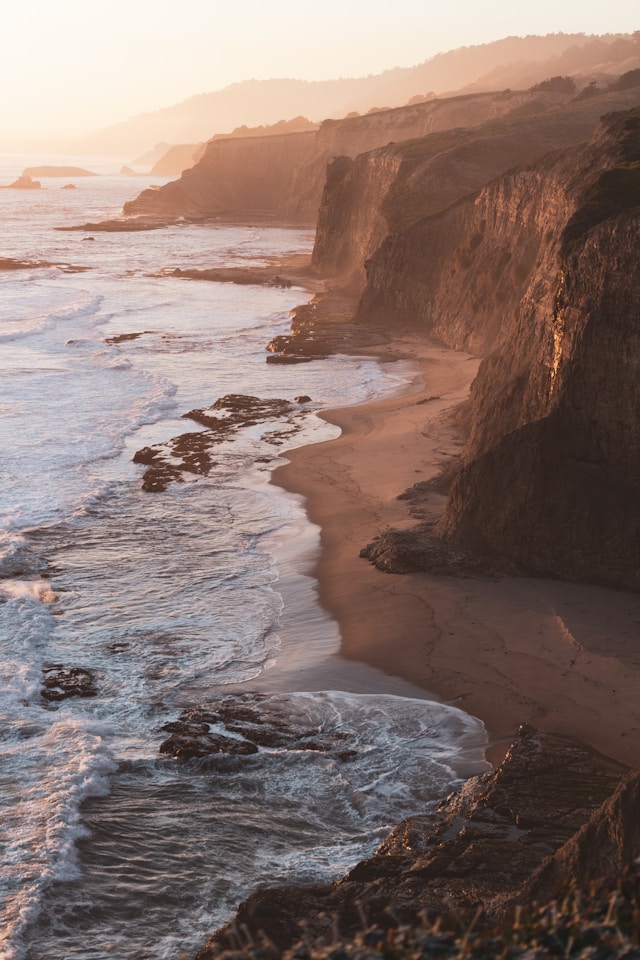Written by: Sanjin Hadziomerovic
From the sandy beaches of Encinitas to the scenic desert of Joshua Tree and the snow-covered slopes of Mammoth Lakes, California offers an incredibly diverse set of destinations for Airbnb and short-term rental (STR) operators. But while the Golden State is packed with opportunity, it’s also packed with local laws and restrictions that vary widely from city to city.
Unlike states with statewide STR guidance, California delegates short-term rental regulation to cities and counties, meaning compliance depends on hyper-local laws. Investors and hosts must navigate zoning codes, permit requirements, tax obligations, and occupancy restrictions that differ even between neighboring towns.
In this guide, we break down city-specific Airbnb laws in Joshua Tree, Encinitas, Lake Arrowhead, Mammoth Lakes, Yucca Valley, and San Diego, using data directly from GetChalet.com.
Joshua Tree: Permit Requirements & Growing Restrictions
Joshua Tree is one of the hottest short-term rental markets in the Southwest, but that popularity has prompted San Bernardino County to clamp down with stricter regulations. All operators must obtain a Short-Term Rental Permitthrough the county, and that includes homes in unincorporated Joshua Tree.
The permit application process involves proving ownership, passing safety inspections, and following zoning rules that limit where STRs are allowed. New regulations now limit the number of STRs per owner and increase enforcement, particularly around noise complaints and occupancy caps.
For investors, Joshua Tree remains profitable — but only for those who understand and respect the rapidly evolving rulebook.
Airbnb Rental Regulations Joshua Tree
Encinitas: Mandatory Permits with Neighborhood Restrictions
In Encinitas, all STR operators must obtain a Short-Term Rental Permit to legally rent any unit — including single-family homes, condos, and duplexes — for periods under 30 days. The permit comes with a set of strict responsibilities.
Operators must follow occupancy limits (typically two adults per bedroom), noise restrictions, and parking regulationsspecific to their neighborhood. STRs must also be in compliance with the Coastal Zone Overlay, and enforcement has increased in recent years.
Encinitas walks a fine line between supporting tourism and protecting neighborhood character. If your property is in a permitted area, the city can be a fantastic market — but non-compliance here leads quickly to fines and potential suspension of rental privileges.\
Airbnb Rental Regulations Encinitas
Lake Arrowhead: Zoning and Permits in the Mountains
Lake Arrowhead is another part of San Bernardino County, meaning STR operators must follow the county’s short-term rental ordinance. First and foremost, properties must be in a zoned area that allows STRs — many parts of the region do not qualify.
If eligible, owners must apply for a county STR permit, undergo an inspection, and meet all fire safety, parking, and trash collection requirements. Newer regulations cap occupancy and require 24/7 availability of a local contact in case of guest disturbances or emergencies.
The county has also increased the number of enforcement officers, and steep fines can be imposed for operating without a permit. While Lake Arrowhead remains a strong STR destination due to its year-round appeal, especially for snow lovers, the operating landscape is tightening.
Airbnb Rental Regulations Lake Arrowhead
Mammoth Lakes: Registration and TOT Compliance Required
Mammoth Lakes is unique in that it has a formal registration and licensing program for STRs. Operators must obtain a Business Tax Certificate and a Transient Occupancy Tax (TOT) Certificate before hosting guests.
Zoning is enforced strictly — short-term rentals are only allowed in designated “transient use” zones. Units in residential areas that aren’t zoned for STRs are prohibited. Moreover, hosts are required to collect and remit 13% TOT, maintain detailed guest records, and adhere to citywide noise and safety ordinances.
Mammoth Lakes is heavily regulated but still investor-friendly, provided you’re operating within the city’s established framework.
Airbnb Rental Regulations Mammoth Lakes
- 📊 Which Airbnb rental markets are set to outperform in 2025 based on revenue growth, occupancy trends, and supply shifts.
- 🏡 Where home prices are still affordable while generating high rental income.
- 📈 How to identify markets with strong appreciation potential for both short-term cash flow and long-term gains.

Yucca Valley: Full Permit Process with Tax and Safety Rules
Yucca Valley, just down the road from Joshua Tree, has implemented a comprehensive STR permit system. Property owners must obtain a Short-Term Vacation Rental Permit, which includes:
- Providing ownership documentation
- Applying for a business license
- Registering for TOT (Transient Occupancy Tax)
- Submitting to a fire and safety inspection
Zoning laws apply as well, and each STR must have a designated local contact who can respond within 60 minutes to any issues. Yucca Valley also limits the number of people per property, enforces quiet hours, and requires trash removal standards to be met.
Investors considering Yucca Valley should note that while the city allows STRs, they are proactively regulating growth — and compliance is enforced.
Airbnb Rental Regulations Yucca Valley
San Diego: Licensing Caps and Strict Operational Rules
San Diego has one of the most sophisticated and restrictive STR licensing systems in California. As of 2023, all hosts must obtain a Short-Term Residential Occupancy (STRO) License, which comes in four categories:
- Tier 1: Part-time home-sharing
- Tier 2: Full-time home-sharing
- Tier 3: Whole-home rentals, capped at 1% of housing units citywide
- Tier 4: Mission Beach-specific whole-home licenses, capped separately
Only one license is allowed per host, and whole-home STRs require winning a spot in a competitive lottery system. The city imposes occupancy limits, quiet hours, parking requirements, and mandates TOT collection and reporting.
Enforcement in San Diego is real. Fines for unlicensed operation can reach thousands of dollars, and license revocations can be permanent. But if you secure a license — especially in Tier 3 or 4 — you’re operating in one of the highest-demand vacation markets in California.
Airbnb Rental Regulation San Diego
Conclusion: Compliance Is Key to Winning in California STR Markets
California’s short-term rental scene is vibrant but highly fragmented. Success depends not only on market fundamentals but also on your ability to understand — and comply with — local rules, licensing systems, and zoning laws.
Some cities like South Lake Tahoe and Palm Springs (not covered here) have banned STRs in residential areas, while others like Yucca Valley and Mammoth Lakes remain open but heavily regulated.
If you’re considering buying or operating an Airbnb in California, the best approach is:
- Read your city’s specific STR ordinance
- Apply early for any necessary permits or licenses
- Consult local experts or property managers
- Stay up to date — regulations change frequently
To simplify your research, check out the Chalet Airbnb Regulation Center, which covers dozens of California markets with local insights, permit links, and investor takeaways.


